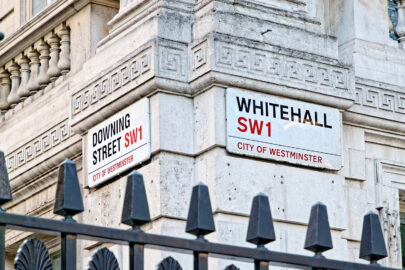There will be a huge number of property professionals for whom June couldn’t have ended quickly enough.
As I write, we are on the last stretch of what has been an incredibly busy – and stressful – time for all stakeholders, perhaps most notably the clients themselves who were waiting to see if they could complete before the end of the month and secure the stamp duty saving available.
If anyone has doubted the importance of politics and the impact that Government intervention can have on the housing market, they perhaps need only look at what has transpired since the stamp duty holiday was announced last July, and then extended at the Budget in March.
While clearly the right decision, I’m afraid there are still going to be transactions which did not complete by the end of June, and while they may still complete before the end of September and secure a partial saving, it may well leave a sour taste in the mouth for certain clients.
We’re already reading about attempts to renegotiate price because the transaction didn’t complete in time, and I see some people are already beginning to play the ‘blame game’ in terms of who they deem responsible.
It is far too early to do this, but I suspect that when the dust has settled, it will make interesting reading to see a breakdown of those transactions which didn’t complete and the reasons why. With so many moving parts, and so many professions involved, there is always a danger that deadlines won’t be hit; add in the special circumstances we have all found ourselves in over the last 18 months, and the chances of this happening are likely to have increased.
As mentioned, some of those transactions will go onto complete, but some will collapse adding to the many thousands of aborted cases which do not get to their end goal every single year. In that sense, 2021 is not really different, because this happens all the time, but looking forward, the Government needs to review the part it plays in all of this.
First up, is the interventions it makes. As we know, post-lockdown 1, demand was already growing significantly in the housing market after two or so months of pretty much nothing happening. There will be question marks about whether a stamp duty holiday was required right then, or perhaps it might have waited to see the levels of transactions that were already being generated.
Secondly, is the timing of the intervention in terms of property professionals and their working practices. While the conveyancing sector, for example, has worked absolute wonders over this period, one can’t help feel that were we in a ‘normal working environment’ their ability to work these large numbers of cases would have been greatly enhanced. As it is, working from home or remotely may well have hindered the ability of firms to process some of these cases efficiently.
Finally, is the nature of the process itself. Currently sales are taking, on average, 20 weeks to complete – a figure which has risen steadily over the last couple of years. Now, of course, some of this will be to do with what I’ve mentioned above, property professionals having to work away from the office and such, but some of this is simply down to the inefficiencies in the process.
In simple terms, the Government needs to legislate and mandate in a number of areas to hit its stated goal of improving the home buying and selling process for all. It can no longer suggest it’s up to the industry to literally get its house in order, or provide supportive words to industry groups – which sometimes can’t decide themselves on the best way forward – instead it has to recognise the improvements that are necessary and make the solutions a formal part of the process.
Until we get that, the industry will do its best, but it will be working with a process which requires updating and which, until that happens, will continue to take time to get through to its conclusion. We all want to speed the process up for our clients – the Government will ultimately decide just how fast this can be done.
Mark Snape is chief executive officer of Broker Conveyancing
